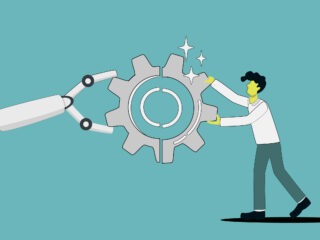As someone who has always been very open about struggling with anxiety, I thought I knew it all. I’m familiar with social anxiety, separation anxiety (from my dogs), generalized anxiety—all the forms of the disorder that most people are familiar with.
But after yet another summer full of uncontrollable wildfires and floods, a new feeling of unease hit me, and I was left wondering: can anyone else relate to this feeling of climate anxiety?
I looked to Google for my answer. And as it turned out, a bunch of other people had, too. In fact, Google searches for “climate anxiety” soared by 565% in 2021, according to the news outlet Grist.
Having finally felt seen, I set out on a quest to learn more about climate anxiety—what it means and how to cope with these feelings. I stumbled upon a Q&A with Dr. Sarah Lowe, a clinical psychologist and associate professor in the Department of Social and Behavioral Sciences at Yale School of Public Health.
First, it’s important to note the difference between worry and anxiety. Worry is an emotional motivator, and in truth, we need more people to be worried about global warming. Where worry changes to anxiety, however, these thoughts become overwhelming and in some cases debilitating.
According to Dr. Lowe, scholars have found that climate anxiety comprises several feelings, such as ecological grief—that is, sadness or longing caused by the changes one observes in one’s ecosystem. Another component of climate anxiety is solastalgia, or “nostalgia for one’s home environment and the way things used to be.”
As my husband and I start to family plan for the near future, the feelings that Dr. Lowe describes resonate with me. I find myself ping-ponging between wanting to start a family but fearing that my children won’t experience, due to climate change, the same joys of childhood as I did, such as playing outside till the sun goes down, only to then chase fireflies. Will the sky be clear enough to still see stars, and will some of the wonders of the world that I’ve seen still stand by the time they’re my age?
I’m not alone in these worries. In a survey of more than 1,000 Americans by Yale in December 2022, around 10 percent of respondents reported “feeling nervous, anxious, or on edge about global warming at least several days per week.” A similar percentage said they couldn’t stop or control their worrying about global warming, and slightly fewer reported that global warming had diminished their interest or pleasure in doing things.
As more events like the wildfires in Maui, Canada, and Europe occur, the rate of climate anxiety is set to skyrocket. So many have already lost their homes, family members, and beloved pets—not to mention the loss of habitat and wildlife.
So…what do we do?
According to Dr. Lowe, if you’re experiencing symptoms of climate anxiety (or even if you’re not!), collective action is one way to lesson these feelings of impending doom. Collective action can increase your social connectedness with people who share similar goals and values. This is particularly important because social support is one of the strongest predictors of mental well-being. Chances are, taking action will give you a stronger sense of self-efficacy and hope for the future, too!
I experienced this recently when I relocated from Chicago to Milwaukee. Having been part of a composting program for many years in Chicago, I felt very out of sorts at the lack of resources available to reduce food waste in Milwaukee. So I acted and emailed my alderman to express this desire for citywide composting. Taking this smallest of actions helped me feel in control by helping to build collective action among my new community.
My role in the Leff Sustainability Group and the work I do for our clients on sustainability topics helps, too. One of our main missions within LSG is to help our clients think strategically, both in creating and executing, about their sustainability goals and messaging. Working on environmental, social, and governance (ESG) reports and producing high-value sustainability content that reaches an audience that has the ability to make positive change brings me a sense of peace. And while I know that we can only help to supply the consumers of this content with the tools and resources they need to make informed decisions, I know my team is doing their part by bringing awareness to the dangerous effects of climate change.
My last piece of advice is to set a healthy media diet for yourself. Stay aware, but put limits on your doomscrolling. We live in a media ecosystem that is geared to tell us about how bad things are and rarely to tell us about all the incredible people who are doing something to help—such as Carlos Manuel Rodríguez, the CEO of the Global Environment Facility. By consciously making different choices in our media diets, we can get energized to make a change. (Have you checked out our #EcoWins yet?)




Leave a Reply
You must be logged in to post a comment.